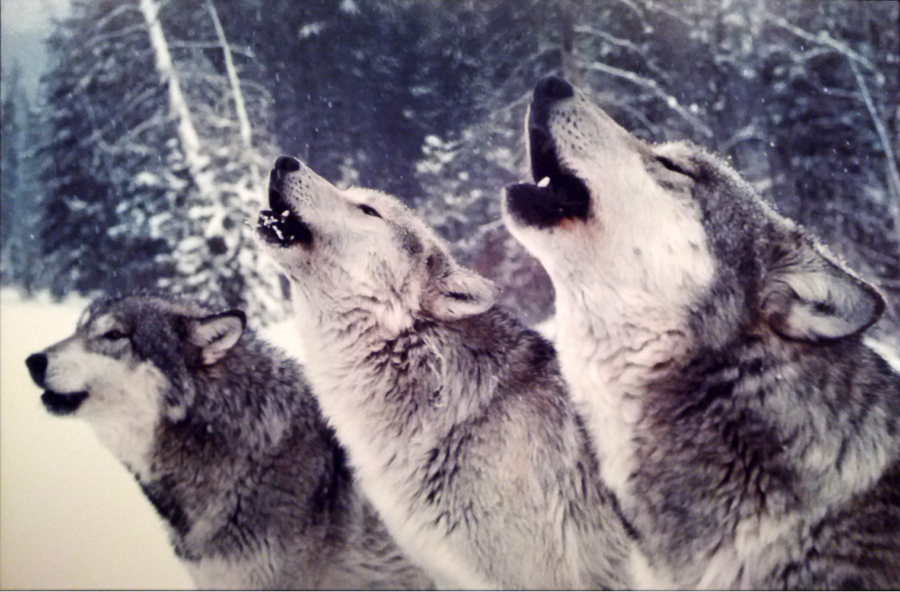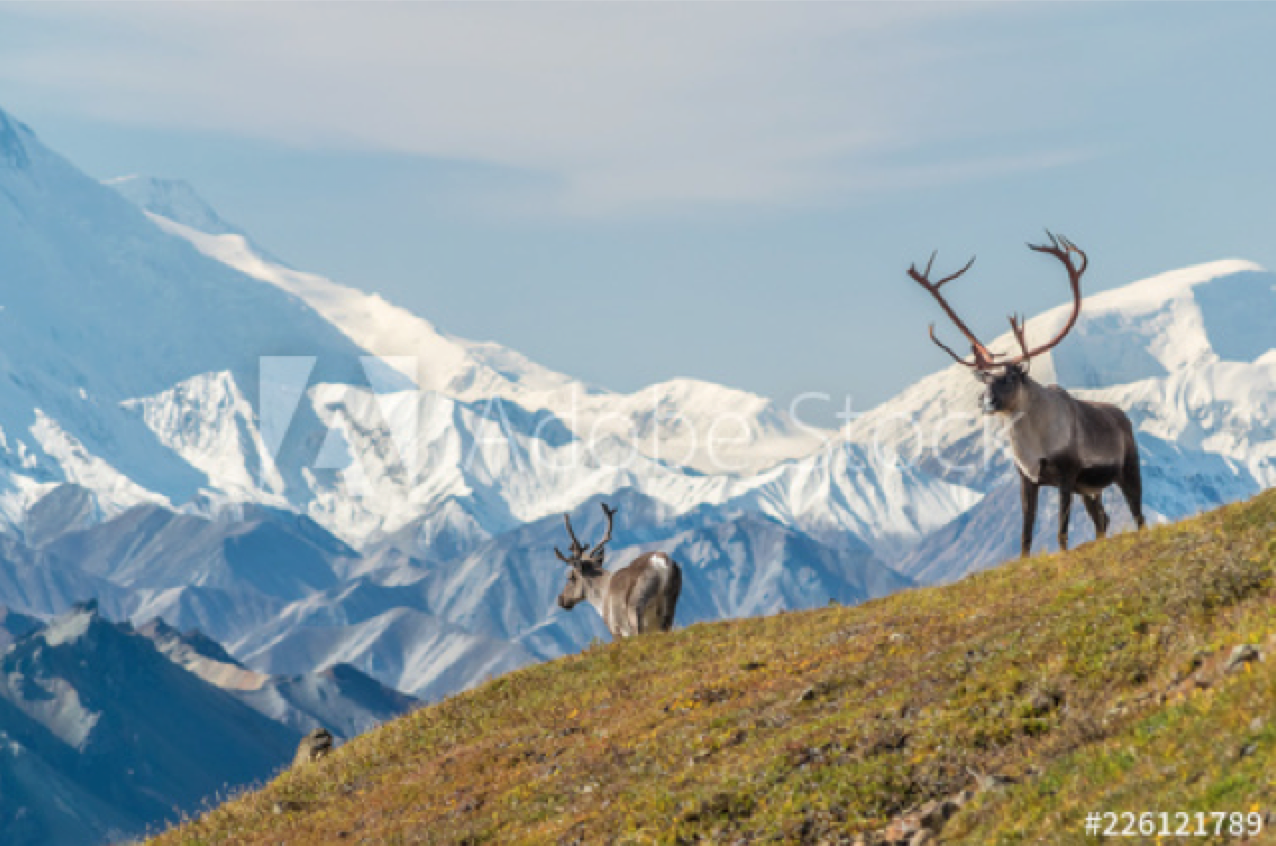
Photo by Vicious Bits, Creative Commons.
Recent research by a team of Canadian biologists, supports critics who've long argued that wolves are being sacrificed unnecessarily in efforts to save iconic mountain caribou in British Columbia and Alberta from possible extinction. Since the 80s, authorities in the two provinces have been conducting "culls" which have probably killed thousands of wolves since.
Culls involve either shooting the animals from helicopters, poisoning them or, in at least one case - an eight-year campaign of sterilization.

Mountain caribou (Rangifer tarandus), one of Canada's most iconic species. A Creative Commons photo.
Yet caribou populations all over Canada, continue to plummet. Thanks to declines in all sub-species, they're now classified, nationwide as either threatened or endangered.
Some of the steepest reductions have occurred in mountainous regions in the two westernmost provinces. A few years ago, they were declared extinct south of the border, in the contiguous US.
Now, a team of experts from western Canada, is taking aim at a study published last year. It supports culling and the penning of pregnant caribou as ways to slow or stop their slide toward extinction. Such findings have been used by governments to justify their "predator control" policies.
Yet this newest evidence states flatly, there's simply no "statistical support" for such a position.
While wolves may account for more than half of caribou predation in other places, "Deep-Snow Mountain caribou" are far less likely to be killed by wolves than by other predators. Yet their numbers have crashed an alarming 45% in recent decades, possibly the steepest decline of any caribou ecotype in the world. (These herds live in southeastern BC, where, as their name implies, winter snows can pile up to three meters deep.)
"Wolves do not comprise the primary source of mortality for Deep-Snow Mountain caribou," the report finds, "constituting only 5–10% of verified cases of mortality - in fourth place after cougars, bears and wolverines." The authors point out, therefore, that it is wrong to apply a "one-size fits all" approach when it comes to wolf culls.
Besides, cullings ignore a long-accepted reality. It is loss of habitat due to human activity such as logging, which is the main driver of population decline.
"Despite warnings that industrial resource extraction, primarily forestry, was detrimental to maintaining viable caribou populations, habitat modification, fragmentation and associated road-building increased over subsequent decades."
Since the "Deep-Snow" herds depend on lichen that grows on old growth trees, above the snow-line for food, their world is therefore especially "incompatible with large-scale clearcut forestry."
"Logging," reads the study, also "leads to increased predator densities and greater access to caribou via clearcuts, roads, snow compacted by snowmobiles, and the loss of forested refuges. Snowmobile and heliskiing harassment are pervasive across the range of Deep-Snow Mountain caribou (ECCC 2018) and impose potential harm during winter and spring calving. Snowmobile harassment has been acknowledged as an increasingly important factor in Deep-Snow Mountain caribou winter ecology."
The study’s lead author, biologist Lee Harding, believes the importance of wooded habitat to caribou survival, cannot be overstated.
”Forests provide caribou with refuge from wolves and separation from other prey animals, including elk, moose, and deer. Without them, caribou must constantly be on the move to find food, exposing them on all sides. Predators are just one of the hazards."
The need for conserving caribou populations, warn the authors, "is now urgent and carries large economic, ecological, cultural and social implications.
By: Larry Powell

I’m an eco-journalist living in Shoal Lake, Manitoba, Canada.
I’m pleased to announce, I’ve just joined an international team of writers, telling “animal tails” (all true) on the online website, “Focusing on Wildlife – Celebrating the Biodiversity of Planet Earth”(FOW).
Please read my FOW stories here.
https://focusingonwildlife.com/news/author/larry/
I’m also a member of the Science Writers & Communicators of Canada and the American Association for the Advancement of Science.
I’m authorized to receive embargoed material through the Science Media Centre of Canada, the Royal Society, NatureResearch and the World Health Organization. This can allow me to “get a jump” on important Earth Science stories by fleshing them out with fact-checks and interviews, in advance. This can arm me with a “hot-off-the-press” story – sometimes stranger than fiction - the moment the embargo is lifted.
I publish the blog, www.PlanetInPeril.ca (PinP), the perfect antidote for fake news!
And you can email me at: PlanetWatch1@yahoo.ca
